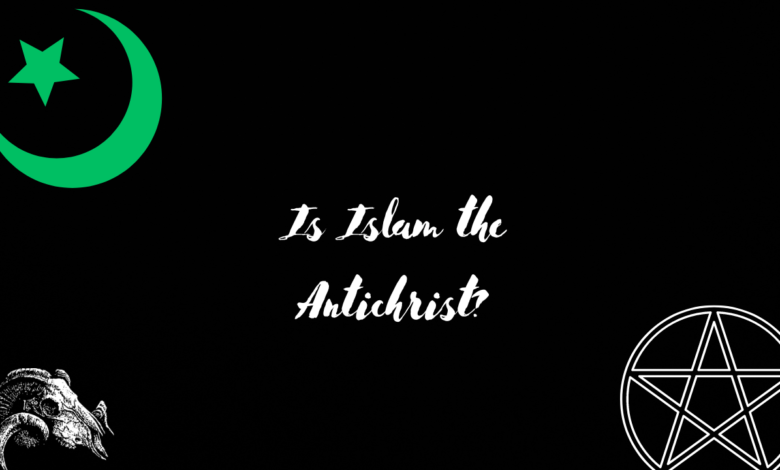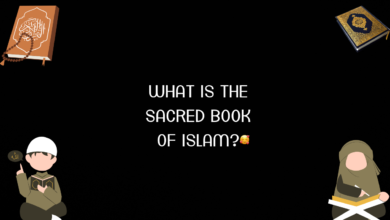Is Islam the Antichrist?

Introduction
In the realm of religious discussions, misconceptions and misunderstandings can often lead to unfounded beliefs and unnecessary divisions. One such misconception revolves around the notion that Islam is associated with the Antichrist. This idea has gained traction in some circles, driven by a lack of understanding and misinterpretations of religious texts. In this article, we aim to debunk this misconception and shed light on the true teachings of Islam.
The Antichrist: A Brief Overview
The concept of the Antichrist, also known as Dajjal in Islamic eschatology, is rooted in Christian and Islamic traditions. In Christianity, the Antichrist is often depicted as a figure who opposes Christ and embodies evil. In Islam, the Dajjal is similarly considered a malevolent figure who will appear before the Day of Judgment, leading people astray with deceit and false miracles.
Misconceptions and Misinterpretations
Associating Islam with Evil: One of the fundamental misconceptions is the idea that Islam itself is the Antichrist. This stems from a misunderstanding of the Islamic faith and its teachings. Islam is a monotheistic religion that promotes worship of the one true God, compassion, kindness, and ethical behavior. It is unjust to label an entire religion as evil based on misinterpretations of its eschatological concepts.
Distorted Interpretations of Texts: Misinterpretations of religious texts, both Islamic and Christian, have fueled the belief that Islam is linked to the Antichrist. Misunderstood verses from the Quran or Hadith are often taken out of context and manipulated to support this viewpoint. However, a holistic understanding of these texts reveals a different message—one of moral guidance and spiritual growth.
Selective Focusing: Another common mistake is focusing solely on the concept of the Dajjal within Islamic eschatology, while ignoring the broader teachings of the faith. Islam, like any other religion, encompasses a wide range of beliefs, values, and practices that extend far beyond the eschatological narrative.
Islamic Teachings: A Counterpoint
Monotheism and Worship of God: Islam is rooted in the belief in one God, Allah, who is compassionate and merciful. The central tenet of the Islamic faith is the declaration of faith, known as the Shahada, which affirms the oneness of God and the prophethood of Muhammad.
Morality and Ethics: Islam places great emphasis on moral and ethical behavior. The Quran and Hadith provide guidance on how Muslims should interact with others, emphasizing compassion, honesty, justice, and humility.
Respect for Jesus Christ: Islam holds Jesus Christ in high regard, considering him one of the major prophets. The Quran acknowledges the miraculous birth of Jesus and his teachings, albeit with differences in interpretation between Islam and Christianity.
Community and Brotherhood: Islamic teachings promote unity and brotherhood among believers, regardless of their backgrounds. This counters the notion that Islam is inherently divisive or opposed to the values of cooperation and understanding.
Conclusion
The misconception that Islam is linked to the Antichrist is a result of misinterpretations, selective focusing, and a lack of understanding of the faith’s core teachings. It is essential to approach religious discussions with an open mind and a willingness to learn from reputable sources. Labeling an entire religion as the embodiment of evil based on misunderstood concepts is not only unfair but also counterproductive to building bridges of understanding among diverse communities. Let us strive to foster a climate of respect and dialogue, embracing the shared values that unite humanity.
FAQs about Islam and the Antichrist
Is Islam the Antichrist?
No, Islam is not the Antichrist. The concept of the Antichrist, also known as Dajjal in Islamic eschatology, is distinct from the Islamic faith. Islam is a monotheistic religion followed by over a billion people worldwide, while the Antichrist is a figure mentioned in Christian eschatology.
What is the Antichrist in Christianity?
The Antichrist is a figure mentioned in the New Testament of the Christian Bible. It is believed to be a person or entity that opposes Christ and seeks to deceive humanity before the Second Coming of Jesus. The idea of the Antichrist is not specific to Islam and holds significance in various Christian denominations.
What is the Islamic view of the Antichrist?
In Islam, the Antichrist is referred to as “Dajjal.” Islamic eschatology describes Dajjal as a false messianic figure who will spread falsehood, perform miracles, and attempt to deceive people. Muslims believe that Jesus (Isa in Islam) will return to defeat Dajjal and establish justice before the Day of Judgment.
Why is there confusion between Islam and the Antichrist?
Confusion might arise due to misunderstandings, misinterpretations, or misinformation about different religious beliefs. People from different faiths might inaccurately associate concepts from one religion with another, leading to misconceptions.
Are there any similarities between Islamic and Christian eschatology?
While both Islamic and Christian eschatologies involve the concept of a deceptive figure, their details and interpretations differ significantly. Islam and Christianity have distinct theological frameworks, and while there might be some parallels in eschatological themes, they are not the same.
Is it accurate to label Islam as the Antichrist?
No, it is not accurate to label Islam as the Antichrist. Such a label oversimplifies complex religious beliefs and perpetuates misunderstandings. Islam is a faith followed by billions of people, and labeling it as the Antichrist is misleading and disrespectful.






